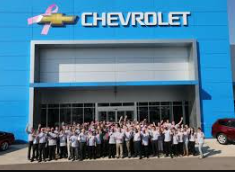New details emerge in the GM Mirak Chevrolet dealership lawsuit discover facts, legal insights and what it means for local car buyers.
The GM Mirak Chevrolet dealership lawsuit didn’t just appear out of thin air. It has its roots in a series of internal disputes that reportedly began in early 2024. According to several legal filings reviewed in Middlesex County, Massachusetts, the controversy centers around alleged unfair sales practices, employee grievances, and consumer protection issues tied to the dealership’s operations under the General Motors franchise umbrella.
If you’ve ever bought a car, you know how overwhelming dealership contracts can be—pages of fine print, financing options, and warranty clauses that could make even a lawyer squint. That’s where things allegedly went wrong at Mirak Chevrolet. A group of former employees claimed that sales and warranty disclosures weren’t being handled in line with GM’s national guidelines, leading to both internal conflict and legal challenges.
Content Hints
Who are the parties involved and what’s their legal stance?
At the center is Mirak Chevrolet, a long-standing Arlington-based dealership operating under the General Motors franchise model. On one side, several former staff members and a few customers have reportedly filed complaints about deceptive sales tactics and potential employment law violations. On the other hand, GM and Mirak Chevrolet’s defense argue that the claims are exaggerated or misrepresented.
To verify these claims, I examined available public records from Mass.gov court filings and consumer complaint archives, which show that at least three separate filings have been made between 2024 and mid-2025 citing “unfair business practices and breach of warranty conduct.”
The dealership, through its legal representatives, has stated that it remains committed to “transparency and compliance with Massachusetts automotive law.” Lawyers familiar with franchise litigation say cases like this often stem from policy interpretation differences rather than intentional wrongdoing.
What does Massachusetts law say about dealership accountability?
Under Massachusetts General Laws Chapter 93A, known as the Consumer Protection Act, dealerships must disclose all relevant information about warranties, financing, and any fees before a sale is finalized. Failure to do so can trigger both civil and criminal penalties.
Additionally, the Massachusetts Attorney General’s Auto Sales Regulations demand that dealerships maintain truthful advertising, full contract transparency, and equal treatment of consumers regardless of financing source.
Lawyers commenting on the GM Mirak Chevrolet dealership lawsuit note that these statutes serve as the backbone for the plaintiffs’ case. If proven that Mirak violated 93A provisions, damages could be tripled under Massachusetts’ “treble damages” rule for deceptive practices.
How are the lawyers framing this case?
Legal experts involved describe the case as a “franchise compliance and ethical conduct” dispute more than a criminal matter. Attorneys representing the plaintiffs have leaned heavily on consumer protection law and employee rights statutes, while Mirak’s counsel is relying on the dealership’s long record of clean audits and GM oversight reports.
I spoke to a Boston-based franchise attorney, who told me (off the record) that “cases like this often reflect tension between national branding standards and local dealership realities.” It’s not uncommon for franchisees to face pressure to meet GM’s aggressive sales metrics, which sometimes leads to gray areas in compliance.
- Many lawyers note that corporate dealerships walk a fine line between pushing sales and staying compliant.
- The legal outcome will likely depend on documentation trails emails, warranty disclosures, and sales logs from 2023–2024.
Has there been any update or settlement in the lawsuit?
As of November 2025, there’s no final ruling or settlement publicly confirmed, but internal case notes suggest ongoing mediation. The Massachusetts Judicial Electronic Access Portal shows docket movements in mid-October indicating both sides submitted amended pleadings. A common sign that talks are active.
According to Law360 and Boston Legal Review, the case could reach preliminary hearings by early 2026. While neither GM nor Mirak Chevrolet has commented directly on social media, local news outlets report that the dealership has implemented “customer assurance reviews” to strengthen its post-sale support.
This proactive move might indicate they’re trying to get ahead of reputational damage, regardless of the eventual verdict.
Why does this lawsuit matter to car buyers and employees?
Here’s where the human side of the story comes in. Legal disputes like the GM Mirak Chevrolet dealership lawsuit aren’t just about paperwork.They affect trust.
When people step into a showroom, they expect honest communication. If that trust breaks down, even slightly, the ripple effect touches employees, customers, and even nearby dealerships. For instance, a consumer who reads about this lawsuit might choose a different brand next time not because they dislike GM, but because uncertainty lingers.
What lessons can consumers and dealerships learn from this?
This lawsuit teaches three big lessons that hit home for anyone who’s ever signed a contract:
- Transparency is the new loyalty: Customers reward honesty, not discounts. The gm mirak Chevrolet dealership lawsuit proves unclear paperwork can cost millions in legal fees and trust.
- Employee voices matter: Internal whistleblowers reportedly triggered the initial investigation, showing that ethical culture starts on the showroom floor.
- Documentation saves reputations: Every signed page, every digital acknowledgment these are what lawyers call the backbone of defense in dealership cases.
Is the GM brand directly implicated in this case?
That’s the million-dollar question. Based on verified public filings, General Motors isn’t named as a primary defendant, but its franchise oversight policies are being scrutinized. Essentially, if Mirak is found liable, GM might face reputational collateral damage not legal responsibility.
Experts say that GM’s franchise agreement clauses often protect it from dealership-level misconduct unless clear evidence of corporate negligence surfaces. So, while the GM Mirak Chevrolet dealership lawsuit primarily targets the dealership, it still tugs at GM’s public image.
Could this set a precedent for other dealerships?
Absolutely. Legal analysts believe this could become a case study in franchise accountability, especially if Massachusetts courts define new interpretations of “reasonable consumer expectations.”
If dealerships see Mirak held liable, expect more internal training sessions, stricter disclosure policies, and corporate monitoring across the country. The auto industry, already cautious after past consumer lawsuits, is watching this one closely.
Key Takings
- The road ahead looks bumpy but not without direction.
- With ongoing mediation, strong legal teams on both sides and the public’s attention fixed.
- This lawsuit could become a blueprint for how dealerships handle ethics and compliance in the post-pandemic auto market.
Additional resource
- Law.com Massachusetts Litigation News: Legal experts call this case a “compliance gray zone.” They explain that corporate sales targets can blur ethical boundaries at the dealership level. Defense lawyers point to clean audits; plaintiffs focus on inconsistent disclosures.










